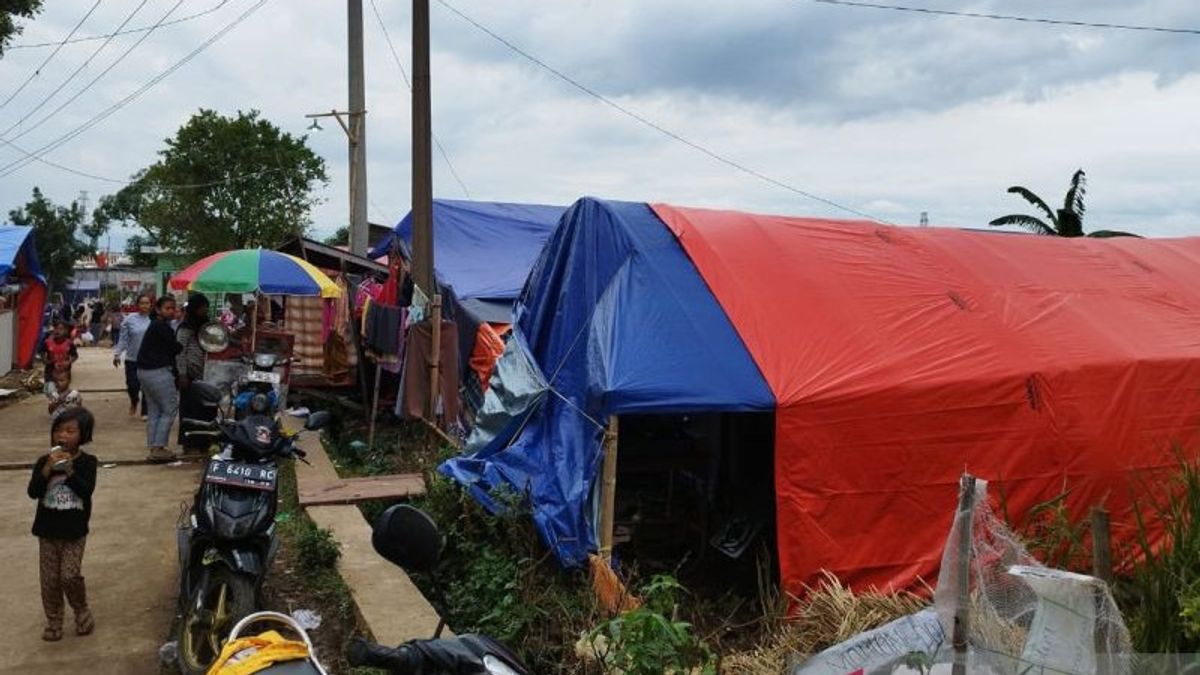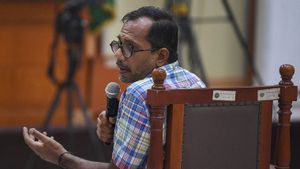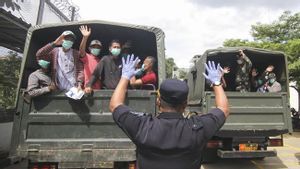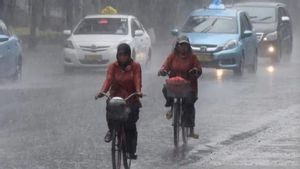CIANJUR - The Cianjur Regency Government, West Java, noted that there were still many earthquake survivors in the area who lived in emergency housing and tents even though they had received residential waiting money to rent a house for various reasons.
Cianjur Regent Herman Suherman said that most of them argued that it was difficult to find a rented house and rented location far from the village. As a result, they still choose to live in tents and emergency housing.
"We have provided assistance with a high occupancy fee of Rp. 500 thousand per month for three months, but survivors choose to stay in tents and emergency housing for various reasons, while waiting for the assistance for phase IV stimulants to be disbursed, the number is still large," he said in Cianjur, Monday,
Herman explained that most chose to stay in tents and emergency housing because they were close to work and could still make a living by working on agricultural land around villages that had been able to be worked on for the last few months.
However, his party still pays attention to residents who have children under five and elderly parents who still survive in tents and emergency housing to get logistical assistance every month distributed by the liaison service.
"Various aids still flow for those who have toddlers and the elderly who still live in tents and emergency housing," he said.
Meanwhile, regarding stage IV stimulant assistance for repairing damaged survivors' houses, he said, it is still in the process with the hope that it can be disbursed before the end of the year because it has entered one year for survivors to live in emergency signs and residences.
"We have submitted a Decree on the name of the recipient of stage IV stimulant assistance to the Ministry of PUPR through BNPB, we hope that it can be realized at the end of the year, so that residents can rebuild their homes," said Herman.
Meanwhile, earthquake survivors in a number of villages in Cugenang, Cianjur and Pacet sub-districts who have lived in tents and emergency housing for one year chose to use residential waiting money for daily needs, not to rent a house.
They argue that it is difficult to get a rented house in the area where they live, plus the difficulty of bringing furniture to a rented house located outside the area and the size of a rented house that cannot be inhabited comfortably because of the number of more than four people.
"If you want to rent a house, the money is not enough, if it's just a rented house, it can only be for two people, so we choose to stay in an emergency residence because it's not far from the fields and gardens where we make a living," said the survivor in Cijedil Village, Cugenang District, Randi.
The same thing was said from another survivor in Tegalega Village, Cugenang District who chose to stay in an emergency residence while waiting for the disbursement of stage IV stimulant assistance because to build their own collapsed house they did not have the money.
"It's not heavy, we've been living in emergency shelters for a year, while waiting for help from the government to be disbursed immediately. If we don't sign a house in this village, so it's better to stay in an emergency residence, it doesn't need to be far away," said survivor Eti Hayati (54).
SEE ALSO:
The English, Chinese, Japanese, Arabic, and French versions are automatically generated by the AI. So there may still be inaccuracies in translating, please always see Indonesian as our main language. (system supported by DigitalSiber.id)
Most Popular Tags
#Prabowo Subianto #New Year #pdip #Hasto Kristiyanto #nataru #NatalPopular
26 Desember 2024, 01:16


















